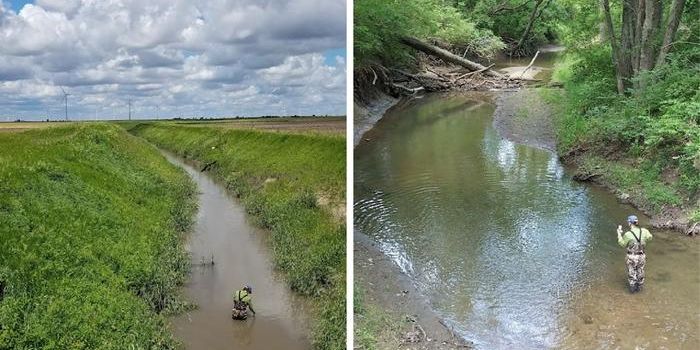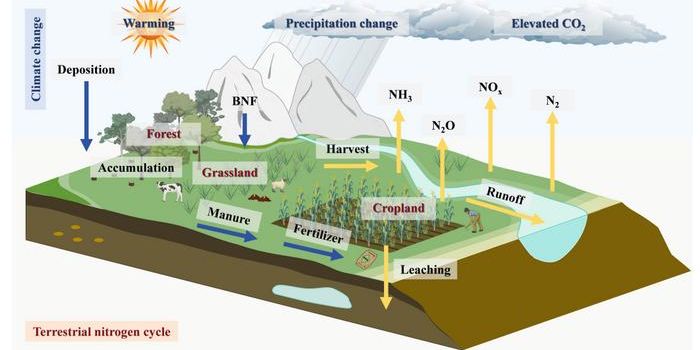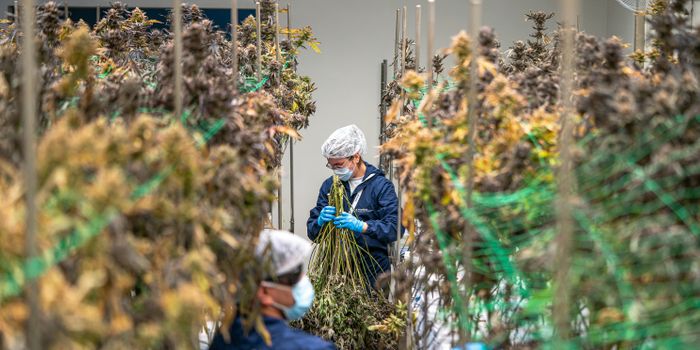Over the past few decades, rainforests have come to be rock stars, of a sort, in the scientific community. Extensively studied by scientists, they have long touted as vital elements in combating global warming due to their ability to store vast amounts of carbon. But according to a new study, the humble, and largely unstudied fresh water pond may be even better at storing carbon, up to fifty times better.

Doctor Rebecca Lester, an international expert on freshwater and estuarine ecology is leading a team from Australia's Deakin University in a study of how much carbon fresh water wetlands in south-west Victoria store, and how they store it. "While research on carbon capture has so far focused on terrestrial and coastal ecosystems," Lester says, "recent data indicates freshwater ecosystems could be up to 50 times more effective in carbon burial efficiencies, compared to land-based ecosystems like rainforests."
"Despite the clear potential for wetlands to mitigate climate change," she goes on to say, "to our knowledge, this is the first study to quantify sequestration in temperate freshwater Australian wetlands, and one of few worldwide."
The key, according to Lester, is, "the way sediments and organic matter, such as leaves, build up under water." Fresh, stagnant water usually has very little dissolved oxygen in it, and so the organic materials stored there, "... are likely to break down more slowly," she says, "thus acting as a carbon sink."
Lester is clearly out to do more than gather data with her study. She's out to change the world. "Our current usage of natural resources is unsustainable," she says, "and it is likely to become even more so under climate change." Many fresh water wetlands in Australia have been drained and turned into farmland that is highly productive, due to the abundance of nutrients built up in their soils. "Yet, in the future," says Lester, "their agricultural value will have to be weighed against their value as carbon sinks." And part of Lester's study includes creating tools to make that assessment cheap and easy. "A ... crucial goal" of the study, Lester says, "will be to define robust methods for measuring carbon stocks - through measuring pH and nutrient concentrations ... so that rapid, affordable assessment can be made across large numbers of wetlands."
"The measurement tools will enable natural resource managers and landholders to reliably estimate and enhance their carbon sequestration, adding to the global effort in addressing climate change."
Lester's study is not limited to naturally occurring wetlands. She is also studying the ability of wetland restoration projects to store carbon. Her study is also not limited to Australia. It is linked to a number of similar studies by Universities worldwide, including Flinders University, the University of Liverpool and the University of Arizona.
Fresh water wetlands may be humble, but in the fight against climate change, Dr. Lester may have discovered a sleeping giant.
By Andrew J. Dunlop
Source: phys.org
 Doctor Rebecca Lester, an international expert on freshwater and estuarine ecology is leading a team from Australia's Deakin University in a study of how much carbon fresh water wetlands in south-west Victoria store, and how they store it. "While research on carbon capture has so far focused on terrestrial and coastal ecosystems," Lester says, "recent data indicates freshwater ecosystems could be up to 50 times more effective in carbon burial efficiencies, compared to land-based ecosystems like rainforests."
Doctor Rebecca Lester, an international expert on freshwater and estuarine ecology is leading a team from Australia's Deakin University in a study of how much carbon fresh water wetlands in south-west Victoria store, and how they store it. "While research on carbon capture has so far focused on terrestrial and coastal ecosystems," Lester says, "recent data indicates freshwater ecosystems could be up to 50 times more effective in carbon burial efficiencies, compared to land-based ecosystems like rainforests." 







